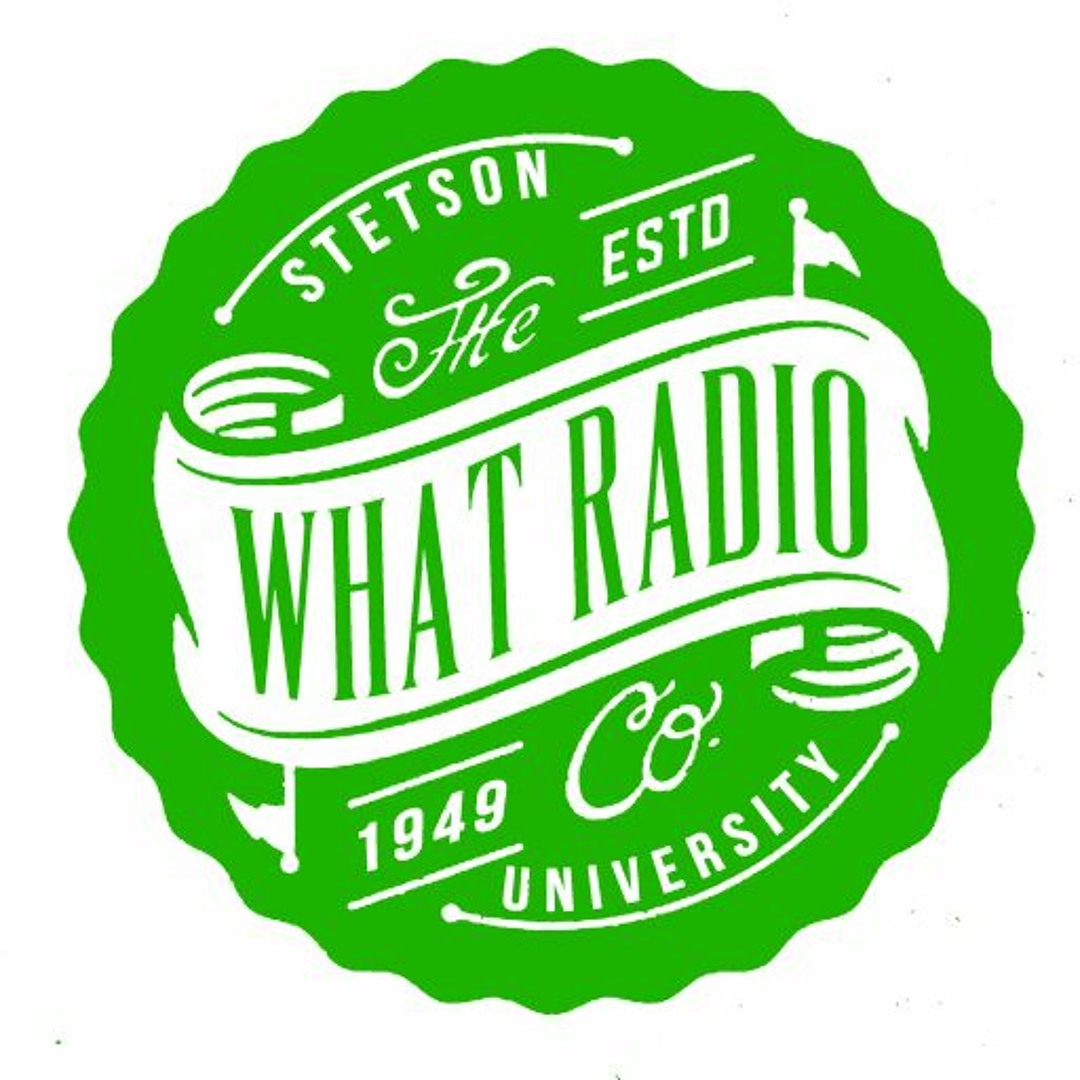Exam season is not for the weak. Finding the time to be social, do homework, study and rest is a breeding ground for anxiety and procrastination. Yet, these are things that students have to do consistently throughout the semester. What makes exam season more stressful than usual is the heavy impact exams have on final course grades. However, some of the methods students use to study for exams and cope with the stress of them may be unhelpful, and even stress-inducing themselves.
A snowball turns into an avalanche
Suzen Langrick ’26, a student here at Stetson in the Elementary Education program, has a precise ritual she uses to study for exams. She admits that she spends more time making a plan to study than she does actually studying, because for Suzen, the setting of her study session determines whether she learns the material or not. Since what she learns makes or breaks her exam grades, she first goes on a hunt for the best place to study. The ideal study spot for Suzen is someplace quiet that avoids a lot of foot traffic. She considers whether she could realistically learn this material with a group or whether being around others will serve as a distraction. The list continues, from things as simple as whether she has all the pens and notebooks she needs for a study session, to whether she needs to look over the main topics of her courses. When she is not studying, this process leads to a lot of stress. She explains, “My sleep is affected by it, which then causes a mental health issue that comes with it. And then you know, the ball just starts rolling. Am I doing this right?”
Alyssa Martinez ’24, who studies investment finance here at Stetson (with a minor in data analytics) shares this sentiment. When Alyssa thinks about how midterms and finals will affect her grades, and in turn, her GPA, she says of the process, “It’s kind of all like an avalanche, like a big snowball.” One thing that Alyssa and Suzen have in common is testing anxiety. The tight timeline of exam season amplifies the occurrence of avoidable situations, creating anxiety around testing. For Suzen, her accommodations require her to make an appointment with Accessibility Services to take her exams, but she has a limited timeframe to make this appointment. Missing the deadline would mean testing in an environment she has trouble focusing in, or worse, forfeiting her chance to take the exam at all. All of these factors raise the stakes and importance of getting everything about her exam preparation “just right.” For Alyssa, who shared that she is diagnosed with anxiety, finishing a test is always a huge concern for her. While taking an exam, as time runs out her anxiety gets worse. As an Involvement Intern for the Center for Community Engagement (CCE), Alyssa is used to managing her time, something she had to figure out on her own as a first-generation student. Her involvement on campus with the CCE and Alpha Alpha Alpha, the fraternity for first-generation students, demonstrate her ability to manage her time commitment. Yet the timing of exams still poses a challenge for her. For these students and others in the same boat, the flexibility of take-home projects and papers makes these options preferable to exams.
Staff, educators and professionals recognize the student tendency to snowball. Lauren Hancock, the Associate Director for Wellness and Recreation and supervisor to the Well Team, recommends that students take a step back from the catastrophic thinking and remembering that one bad grade does not determine a class outcome, much less your entire Stetson experience. While laughing, Lauren recalls a time during her undergraduate career when she stayed up all night cramming for a test she later got an F on. While, it may not have been the easiest thing for her to accept in the moment, that F did not hold her back from success. Although the possibility of a bad grade may not be the end-all-be-all, stopping yourself from panicking at the moment is easier said than done, and Stetson’s Multicultural Mental Health Counselor, Tiffany Toussaint, has some wise words on recognizing when your stress may be out of control. She struggles initially to come up with language that will be inclusive to the diverse community she serves, as everyone copes with stress differently. In the end she believes, “It depends on how it’s affecting your life. If you’re losing sleep, if you’re not eating well, if you’re irritable and snappy within your relationships. So if it’s interrupting your ability to live, laugh, love, all those.”
Cramming for Temporary Perfection
For those with high academic standards, which Nicole (Nico) Alonso ’26 self-proclaims herself to have, grades can be everything. Nico is enrolled as a full-time student and works on campus, so her opportune time to study is at night since that’s when her schedule is open. She starts cramming for exams “the week or weeks before,” which is markedly different from how she approaches other large course assessments like essays. She expresses that breaking up the essay process and researching over time gives her “a deeper understanding of the content.” The accelerated timeline of exams makes her anxious for their end, and when she finally leaves the exam room she experiences a sense of relief, and leaves most of the information she learned for the exam behind. Nico, who describes herself as an A-B student, admits that once a particular exam is over, for her, the material is forgotten.
Kaitlyn Watson ’25, a Stetson student in the STEM field, compares exams to a fight or flight response, stating, “It doesn’t help my knowledge- you don’t have that memory of how you act in stress situations. You just kind of get through it.” Despite this, Kaitlyn is a high-performing test taker, partly due to her understanding of exam structure. She admits sometimes, “I don’t know the answer, but I know if I write these words, I get points for them.” To a certain degree, for someone like Kaitlyn, passing a test can be more about memorizing the right boxes to check than understanding course material. For her, what often does become more dedicated to memory than what she has studied for an exam are lectures that catch her attention and conversations with professors where she can get her questions answered.
In comparison, Suzen Langrick ’26 feels that exams do not generally improve her understanding of course content, but low scores in classes she is not doing well in are exceptions to the rule. Suzen says, “That is the one instance where taking the exam and getting my grades back and feedback helps me understand what I am missing.” Generally, the Stetson students I spoke to who identified themselves to be high-performing on tests expressed remembering less of the information they studied for exams in the weeks after in comparison to the students who communicated not scoring as well. If good grades prove that you do not have to remember the information forever or even understand it to do well, there is little outside motivation to take it a step further and commit it to memory. However, students who perform poorly on exams reflect on them with the hope of gaining that knowledge for future opportunities at grade improvement. It is difficult to make a broad statement on whether projects, papers or exams should hold more weight as students’ strengths are so different. However, from a counseling perspective, Tiffany Touissant’s personal opinion is that, “when it comes to academics- when I hear the word ‘normal’ or ‘traditional’, or ‘this is how people learn’, ‘this is how we gauge’- I think that exams are tailored towards a very specific type of learner, and a very specific type of test taker. I don’t believe that there are enough varieties of ways to gauge whether or not a student is learning that caters to neurodivergence, different types of learners, different ways of recalling information, different application processes. I feel like it’s just very rigid in its approach. Therefore, it doesn’t work for everybody.”
Why do we test like we’re running out of time?
Exam season at Stetson, like many other universities, is better described as exam week. Based on the interviews I completed with Stetson students, many get through exam week by treating it like a sprint. They get little water, little nourishment and little rest. Balance is abandoned and the scale is tipped to bet it all on academic success. Yet, staff and students seem to agree that this may not be the best choice for students’ overall health and well-being. When asked what could make exams easier, Alyssa Martinez ’26 expressed, “more time in between exams– if exam season wasn’t just a week [but] spread out.” Time seems to be the answer to most students’ silent exam prayers. Nico Alonso says she “can’t do a sit down exam. It has to be an essay that I can break up or a research paper over a period of time. Sitting there and being timed, that’s what stresses me out the most-that I have such a limited amount of time.” Counseling’s Tiffany Touissant made similar remarks citing back-to-back exams as a source of stress along with the rigor that accompanies it. She thinks “that there are ways to meet learners where they are– as it relates to the way that they learn and apply information.” Studying for these exams simultaneously is difficult enough, but continuing to apply yourself while walking into an exam room for the second time in a day poses a significant mental hurdle. Exam week may not be a challenge to some students, but an alternative exists that does not penalize students for learning on a slower timetable.
Hatter Health
Everyone tests differently, and there are ways to give yourself an advantage if you are not a good test taker. Take time to research and look into your classes before registering for them. If multiple professors are available to teach a course you need, look for someone whose teaching and grading methods work with your skills and weaknesses. Use your time wisely, and plan ahead so you are best prepared to deal with the demands of the class. If you remember one thing when you are stressed about classes, let it be the words of Well Team’s supervisor, Lauren Hancock, “I want Hatters to take care of yourself, you only have one life and I’d rather students focus on taking care of themselves and being the best version of themselves rather than trying to be the best academic version of themselves.” Students and staff alike gladly offered up coping skills you can practice, whether before, during or after exam season, to stay the healthiest version of you.
Student coping skills to copy
- If you feel like nothing more can be done, just do what you can
- Meditate
- Face masks
- Go for a walk
- Take a long, hot shower
- Work out
- Practice breathing exercises
- Have a study session with friends
- Have something to fidget with while you’re testing
- Make sure to do one thing from your daily routine
- Use the break after exam weeks to rest and regroup
The counseling guide to success
- Prepare for exams by learning information as it is presented
- Learn self-care techniques
- Monitor your responsibilities to avoid overcommitment
- Monitor your emotional state, even if that means asking friends how you’ve seemed recently
- Grounding techniques
- Be disciplined with your coping techniques, as coping skills are built over time and may not be initially successful.
- Visit one of the Counseling Center’s Coping Skills Workshops
- If exam season has you stressed, explore “the why.”
- Use Academic Success and Accessibility Services!









